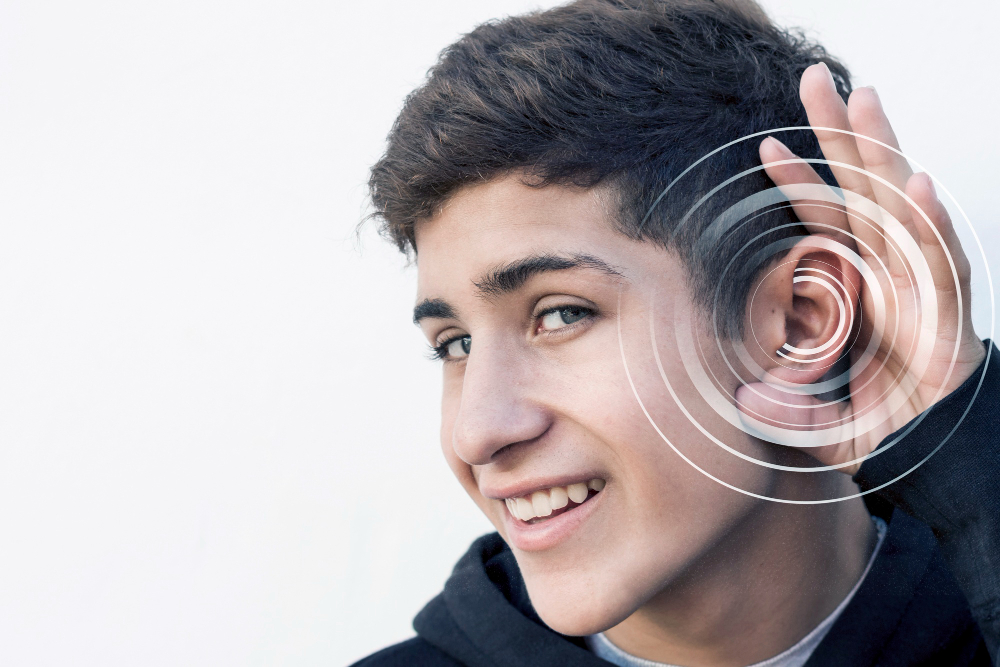Tinnitus is when you hear ringing or buzzing sounds inside your head created by your hearing system, not your environment. The sound can be loud or soft, low, or high pitched. Tinnitus can occur in one ear or both ears.
The prevalence of tinnitus is increasing in the young population because of the habit of listening to high volumes using earphones.
You cannot turn it off or move away from it, which can be spectacularly annoying.
Symptoms of Tinnitus
Tinnitus can be present all the time or come and go. The sorts of noises that people with tinnitus hear include:
- Ringing
- Whistles
- Buzzing
- Humming
- Roaring
- Pulsing sound (like a heartbeat)
It is most noticeable at night or during periods of quiet. The noises of tinnitus may cause loudness, and you may feel it in one or both ears.
In a few cases, the sound is so loud and interferes with your ability to concentrate on the external sound.
Causes of Tinnitus
Tinnitus is not a condition; it is more of a symptom of some other underlying medical condition. Any of the following complications can cause tinnitus-
- Hearing loss
- Loud noises
- Sinus and ear infections
- Blood vessel or heart problems
- Meniere’s disease (The inner ear is affected by unknown causes which lead to deafness)
- Brain tumors
- Hormonal changes
- Thyroid problems
- Certain medications
Countless circumstances might cause it, but almost all involve some injury to the auditory system.
Diagnosis of Tinnitus
Your doctor will diagnose tinnitus strictly based on symptoms without further investigation. But to determine the appropriate treatment, your doctor must first determine if any underlying condition is causing tinnitus. To do so,
- The doctor will ask about your complete medical history and physical exam
- Your doctor may organize a hearing test
- Your doctor may order other tests depending on the presumed cause of the tinnitus
Diagnosing tinnitus is tricky because you are the only one who can hear the sounds.
Treatment for Tinnitus
Tinnitus has no cure yet, and treatment depends on the underlying condition. Common treatment options include,
- Prompt care for an ear infection
- Discontinuing any medicines which may be causing tinnitus
- Cochlear implants for those having tinnitus along with severe hearing loss
- Maskers help some people by making the ringing or roaring seem softer
- Hearing aids help to control outside sound levels and may make it easier for you to hear
- Medications may help reduce the severity of symptoms and improve your mood or sleep
- Relaxation techniques provide relief for some people as stress worsens the condition
- Treatment for hearing loss if present
- Counselling helps you change how you think about and react to your tinnitus
Talk to your ENT specialist to determine strategies for reducing tinnitus.
How to Prevent Tinnitus?
Here are some ways in which to reduce the risk of developing tinnitus:
- Use ear protection when in loud places
- Listen to music and headphones at a safe volume level
- Maintain a healthy diet and get regular exercise
- Discussing the adverse effects of any drugs before using them
One of the most proactive ways to protect yourself from tinnitus is to prioritize your hearing health today.
Lifestyle Tips to Manage Tinnitus
Some strategies that may help you to live with tinnitus include,
- Practice relaxation techniques like meditation or deep breathing
- Avoid stress or loud background noises, when possible, which can worsen your symptoms
- Develop a sleep routine like taking a bath and avoiding caffeine before bed
- Avoid total silence, which can make your symptoms worse
- Seek distraction from a hobby to direct attention away from tinnitus

